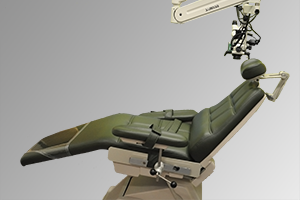
Explore Dental Hygiene
What is a dental hygienist?
Dental hygienists are preventive oral health professionals who have graduated from an accredited dental hygiene program in an institution of higher education and are licensed in dental hygiene to provide educational, clinical, research, administrative and therapeutic services supporting total health through the promotion of optimum oral health.
What does a dental hygienist do?
- Assess the patient’s oral tissues and overall health.
- Screens the patient for any oral diseases or other abnormalities.
- Identifies if the patient is at risk for disease.
- Formulates evidence-based, patient-centered treatment care plans.
- Performs the clinical procedures outlined in the treatment care plan.
- Educates patients regarding oral hygiene and preventive oral care.
- Evaluates the outcomes of educational strategies and clinical procedures provided.
The general responsibilities of dental hygienists include...
- Removing plaque, calculus and stains from the teeth.
- Exposing and processing dental X-rays.
- Applying cavity-preventive agents, such as fluorides and pit and fissure sealants.
- Administering antimicrobial agents.
- Providing clinical and laboratory diagnostic tests for interpretation by other health professionals.
- In some states, dental hygienists...
- Administer local anesthetics and nitrous oxide.
- Place filling materials, temporary fillings and periodontal dressings.
- Remove sutures.
- Perform root-planning as a part of periodontal therapy.
- Polish restorations.
Dental hygienists provide clinical services in a variety of settings such as private dental practice, community health settings, nursing homes, hospitals, prisons, schools, faculty practice clinics, state and federal government facilities and Indian reservations. In addition to clinical practice, there are career opportunities in education, research, sales and marketing, public health, administration and government. Some hygienists combine positions in different settings and career paths for professional variety: working in education and clinical practice is one example. Flexible work hours can be a feature of this profession, with some hygienists working full time, others part time.





